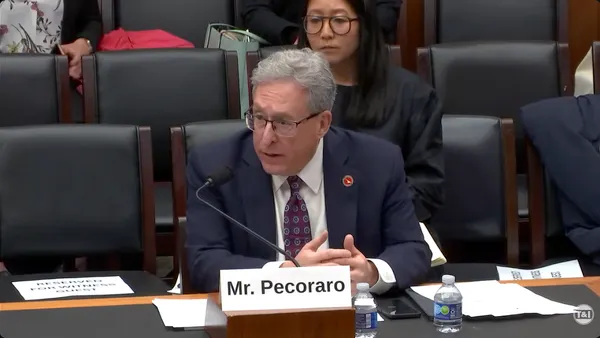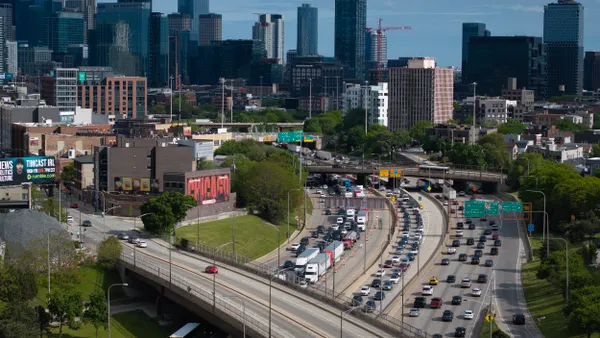Dive Brief:
- Cars driving through the busiest parts of Manhattan could be charged $11.52 one-way under a new congestion pricing proposal, according to The New York Times and others.
- The proposal, prepared by Gov. Andrew Cuomo's Fix NYC advisory panel, recommends trucks to be charged $25.34, while those riding in cabs could face a $2 to $5 surcharge. The fees would apply to vehicles driving below 60th St. in Manhattan, and would not apply to those who take FDR Drive.
- The full congestion pricing report will be presented to Cuomo on Friday. If approved by the state legislature, the plan could go into effect as early as 2020.
Dive Insight:
If this plan is approved, it would make New York the first city in the country with a permanent pay-to-drive plan, according to The New York Times. However, the plan will certainly face backlash, most likely from Mayor Bill de Blasio, who recently said during a press conference that there are "serious fairness issues when it comes to congestion pricing," noting the system could be unfair for low-income drivers. Both Cuomo and de Blasio agree congestion easing is necessary, but disagree that congestion pricing is the best solution.
"I’ve said it before, I’ll say it again – the best way to address the long-term needs for the MTA, and particularly the subways, is a millionaires tax," de Blasio said.
According to a draft report of the plan, New York's traffic congestion "now ranks second worst among cities in the United States and third worst among cities in the world." Additionally, traffic congestion is attributed for costing the New York metro area nearly $20 billion annually — including $9.2 billion in travel time cost, $2.5 billion in excess fuel and vehicle operating costs and $5.9 billion in total revenue loss by industry.
Congestion pricing could force more drivers to change behaviors, to take alternative routes, and to carpool or utilize rideshare and bikeshare services more frequently. The pricing plan could also generate revenue for the city to utilize in infrastructure maintenance — including fixing the city's subway system, which faced multiple "state of emergency" statuses in 2017.
For these reasons, congestion pricing has been championed in the past, most notably by former Mayor Michael Bloomberg in 2008. However his plan died when Democrats refused to put the bill to a public vote on the floor of the State Assembly.
The success of this proposal remains to be seen, and can be more carefully analyzed when the full report is released. Smart Cities Dive will update this story when more details surface.











